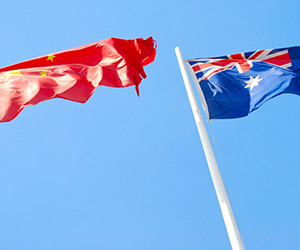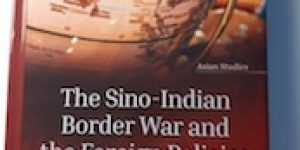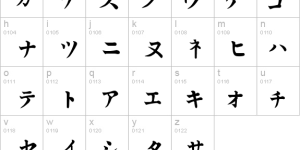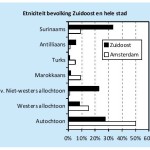My Story ~ 20. A Special Representative
No comments yet “Wherever I go, I would like to try my best to be a special representative, hoping to do what a Chinese should do in Australia in my own way.”
“Wherever I go, I would like to try my best to be a special representative, hoping to do what a Chinese should do in Australia in my own way.”
My hometown is Zhangjiagang, Suzhou. The legend tells the story that it was the battlefield of Mongols during the Yuan dynasty and had been prosperous for a period. After the downturn of the Yuan dynasty, many people stayed here incognito, and some of them changed their surnames to “Miao”. So the Miao are actually descendants of the Mongols, and even the Yan Zhi group of Genghis Khan. When talking about my background, I always thought I was born to do something significant, and the glorious history left by my ancestors should be cherished and respected.
I came to Australia in 1993. The reason I came here can be summarized in the phrase “Saving the country through twisted means”. In 1990, I graduated from a university in Beijing, and then I went to the University of British Columbia in Vancouver, Canada, studying for a master’s degree. At that time, applying for a family visa to Canada had some problems, and even my wife was not able to visit me. Feeling rather depressed, I angrily applied for skilled migration to Australia, although I had preferred to stay in Canada. However, my application was successful. My family also successfully applied for the migration in 1993. So it was these circumstances that “accidentally” brought me to Australia—now it seems as though I have been here fo a lifetime.
In fact, I was not familiar with Australia before coming here, all I knew about it was the famous Sydney Opera House. I came here simply because Canada failed me and I really felt banished from Canada. Even worse, my first impression of Australia was not very amiable and nice.
Under the skilled migration scheme, you can come here and become a permanent resident, but you need to indicate your future plans. For me, more study was the first choice. I had got my master’s degree in Canada and I certainly did not want to stop my studies. Luckily, at Macquarie University in Sydney, I met a former school mate from the University of British Columbia in Vancouver. She had already graduated and was the vice director of the Marine Academy of the Australian Commonwealth Scientific and Industrial Research Organization (CSIRO). She said that she was doing a research project, a joint venture between the Macquarie University and CSIRO. The project provided a generous scholarship and she asked me to join her. I thought it was a professional project and because I had both the help of my former school mate and financial support, why not to have a try? So, I quickly agreed and began to do my doctorate at Macquarie University.
I was doing the subject along with my mate, so when she moved the laboratory to Canberra, I followed her there. In 1996, when I had almost completed my studies, I heard by chance that a local weather bureau was recruiting forecasters. My theoretical studies were all about the weather, so I applied for it without hesitation, and finally I was successful.
From the end of 1996 until now, I have stayed with the weather bureau. From application to job training, to preparing forecasts, I worked for five years at the Canberra Weather Bureau. Presenting the weather forecast, I appeared frequently on television and on the radio, which made me a sort of local celebrity. More importantly, I am the only Chinese who has worked as a forecaster in the Weather Bureau. Although forecasting is an ordinary job, there is still a lot of pressure. Australia’s weather bureau is different from that in China. In addition to the daily weather broadcast for the general public, our work concerns many other aspects such as aerospace and national defense. We had a great responsibility. In those five years, I experienced a lot of major weather events such as hail storms, fog and ice storms, I even assisted the Australian Prime Minister. It was inevitable that I made some wrong predictions, major and minor, and experienced ups and downs. Now I am the project director of the National Weather Service of Australia, and I know of the hardships I have experienced along the way.
Perhaps because I am in this position, I am bound to encounter a lot of things in the international arena that cannot happen to ordinary people. Whenever it occurs, I would have a doubt hovering in my mind: which side do I belong to? How do I show my identity?
For example, I once went to participate in a maritime conference hosted by the United Nations to discuss matters related to the tsunamis. This was a very formal biennial meeting and countries from all around the world participated. As the representatives of the Australian National Weather Service, my colleague and I participated at the meeting with two other representatives from Australia Geoscience Bureau. I was the only Chinese among them. The China Oceanic Administration and the Hong Kong Observatory sent six representatives. The seats for China and Australia were next to each other. Simply by looking at my face, others probably thought I was a member of the Chinese delegation. Only when looking at my name card did others realize that I was on the Australian side. As a result, a strange and awkward scene emerged: a person of Chinese appearance, me, sitting at the Australian side, consulting and negotiating with China on behalf of Australia. At this meeting, New Zealand held the presidency, China and Japan were the deputies, and therefore China’s status was very important, while Australia was simply a member of the conference. However, because of its geographical location, Australia presented a strong position on behalf of the South Pacific. It wanted to be the control center for tsunami warnings, which would be helpful to its political development. But in that case, it will inevitably affect the interests of neighboring countries including China. On such an international occasion, I suddenly discovered that your role and position determines everything. No matter which side my heart is partial to, no matter whether I can understand multilateral relations and conflicting interests, as long as I stand behind the name card of Australia, I have to speak on behalf of Australia. Sometimes I wonder whether I can remain neutral. But at that time, my subconscious always reminded me that I worked for the Australian government and must speak for Australia. Maybe I felt frustrated, but I still had to make a clear statement on behalf of Australia.
You may ask me, was there one minute or even a fraction of time when I wanted to sit with the Chinese delegation?
Of course, yes.
But even if I walked over and talked about the weather or chatted with the Chinese delegation in Chinese, I still consciously or unconsciously controlled my own mind not to be too familiar or intimate with them, because I knew that maybe I have to cross thousands of miles to reach just a position.
On another visit to Bali to do the preparatory work related to a tsunami conference, I felt my dilemma again. Indonesia invited Australia to visit their tsunami control center and I went there as the official representative of Australia. When they received us, they were stunned, all four representatives had Asian faces, and visually, our faces were similar to theirs, but we represented different countries. They joked that the previous visiting Australians did not look like us, so this meeting today was really special. We soon found that our similar skin color did not reduce the seriousness of the meeting. Instead, they paid more attention to the meeting with a warm reception and rigorous discussion, and our hosts were very hospitable. Maybe they soon found that this group of black hair and yellow skin people were Chinese, but they discovered that we were not speaking for China. When you show your position, they will respect and admire you more because you are special. In their eyes, skin color is not the most important thing, the position you take and the official side you represent is the focus of attention. At this kind of international moments, I try to minimize my personal emotions and restrain my personal feelings, so that I can know more clearly what I should do.
Of course, it’s not to say that as a Chinese, I must act against the Australian position. In fact, many times when I participated in various activities and meetings on behalf of Australia, I felt very proud, because it showed that I not only had a responsible position in Australia, reflecting my own values, but also brought honor to the Chinese people.
When it comes to “home”, I have to admit that my home is Australia. I have my family, my job, my circle of life, and everything is so real and alive. But this is my “little” home. When it comes to China, it is the “big” home, my “root”, the land I belong to and the hometown of all my Chinese descendants. No matter where I live, my heart is closely bound up with China. For me, both sides should not be in conflict, because I cannot give up and abandon either side. So wherever I go, I would like to try my best to be a special representative, hoping to do what a Chinese should do in Australia but do it in my own way.
You May Also Like
Comments
Leave a Reply









